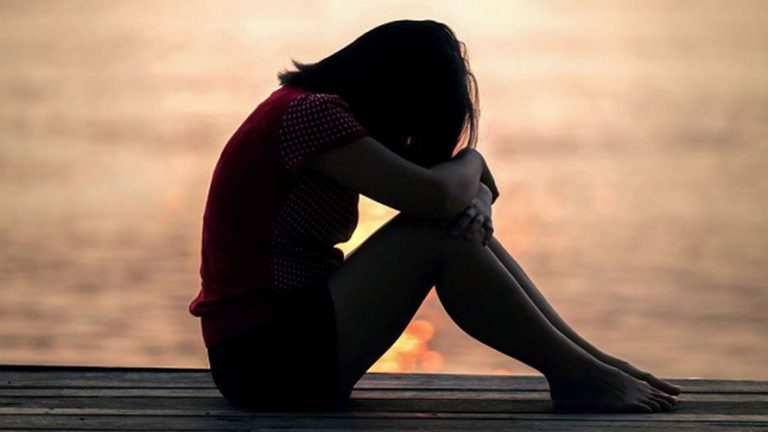
Parents’ decisions and their conflicting attitudes make a child depressed
Syeda Anmol Ali
Depression, anxiety, loneliness are all related to psychology but the causes of all these are very different. Some have depression due to a breakup, while some have job depression. The family issues also cause depression, someone gets depressed being unable to get adjusted in gathering of friends.
We can find the insights and comparisons of Junko Kitanaka, a professor of medical anthropology in the Department of Human Sciences at Keio University in Tokyo, Japan, in her book ‘Depression in Japan: Psychiatric Cures for a society in distress’. This book has won five awards including the American Anthropological Association’s Francis Hsu Prize in 2013.
The depression is looked at different ways in various socio-political contexts
According to researchers the depression is looked at different ways in various socio-political contexts. Each society has its own unique circumstances and so we need a much broader understanding of what the social contexts are that lead to such vastly different experiences of depression.
I conducted ethnological research about how parents’ decisions in the family make a child depressed and what are the reasons for this?
A lot of anthropologists have worked on it e.g. Mordoch Elaine, Hall Wendy A. “Children’s Perceptions of Living with a Parent with a Mental Illness: Finding the Rhythm and Maintaining the Frame” (2008), Rijsdijk Fruhling V., Neiderhiser J. M., Narusyte Jurgita, Shaw Daniel S., Natsuaki M. N., Spotts E. L.
A research paper “The Relationship between Parental Depressive Symptoms and Offspring Psychopathology” estimates how childhood experiences with parental mental health problems shape trajectories of children’s distress in adulthood.
As the studies suggest that 85% of Pakistan’s children or youth suffer from this depression, I talked to a number of people who were unknown to me and I was also stranger to them. During the interviews, many reasons emerged, but the most common cause was a contradiction in thinking of couples.
Parental mental health problems shape trajectories of children’s distress in adulthood
Mrs. Fahad shared that her university life started with depression which was caused by her parents. “My mother was not allowing me to go out and my father wanted to make me a professor. I was stuck between these two decisions as to how to take both decisions together as both were necessary,” she said.
“I managed this somehow but further studied compromising on many things that were essential for academic records. With every decision, I faced a new problem – mother did not agree to stay outside and father trusted and allowed.”
Mrs. Fahad said that it does not mean that her mother does not trust her. “Mother had a different way of thinking and father wanted to make me strong in a different way. His own personal ambitions became a victim of this and he became disturbed.”
“When the educational series ended, there was a new question. Mother was not letting me do the job and father was agreeable. My mother became silent in front of my father, but I started getting insults every day. Finally, I got fed up and left everything and got married. Even in the decision of marriage, mother and father had different opinions. Mother wanted a cleric boy, and father wanted a man who could see this world as well,” Mrs. Fahad shared.
After a lot of research, a surprising result came out, what is the reason for the contradiction in the couple’s thoughts? 87% people attributed it to love marriage. But a love marriage is not at all the cause of the conflict in the couple’s thinking. I pursued this research work with the question why and how love marriage is responsible for the conflict in the couple’s thinking? Some love marriage couples said that the reason for all this is not a love marriage at all, nor is there anything wrong with an arrange marriage. All this is the effect of social environment.
Sadiq Ali said that in a love marriage, the partners understand each other and agree on many things, but in an arranged marriage, there is space left somewhere. The partners understand each other but cannot completely adapt themselves to the partner.
Ms. Faria said that some of the accidents in the past are also the reasons for this. Psychologically, the couple faces some injustice in the past which remains somewhere in their mind and comes out in a stubborn way in an imperceptible way.
Conflicts among parents cause the depression in children
The point is that until today whenever one hears the name familial depression, the only thought that comes to mind is “children being stubborn and parents denying them. But parental stubbornness and denial of children is also a cause of depression. One wants the child to be like this, the other wants the child to be like this, but both cannot resolve the issue, which make the child emotionally disturbed and depressed.
Amidst such a situation, a quote “Everything that drowned me taught me how to swim” by Jenim Dibie, a Nigerian poetess and writer, will help those facing the depression.
Poetess and writer Raine Cooper depicts the depression in these words: “My forest is dark, the trees are sad, and all the butterflies have broken wings.”
According to her, forest means his family is dark, trees means his children are sad and the butterflies means his happiness are destroyed.
(All the name are fake because they have refused to identify themselves.)
____________
 Syeda Anmol Ali from Hyderabad is student at the Department of Archaeology and Anthropology, University of Sindh Jamshoro.
Syeda Anmol Ali from Hyderabad is student at the Department of Archaeology and Anthropology, University of Sindh Jamshoro.